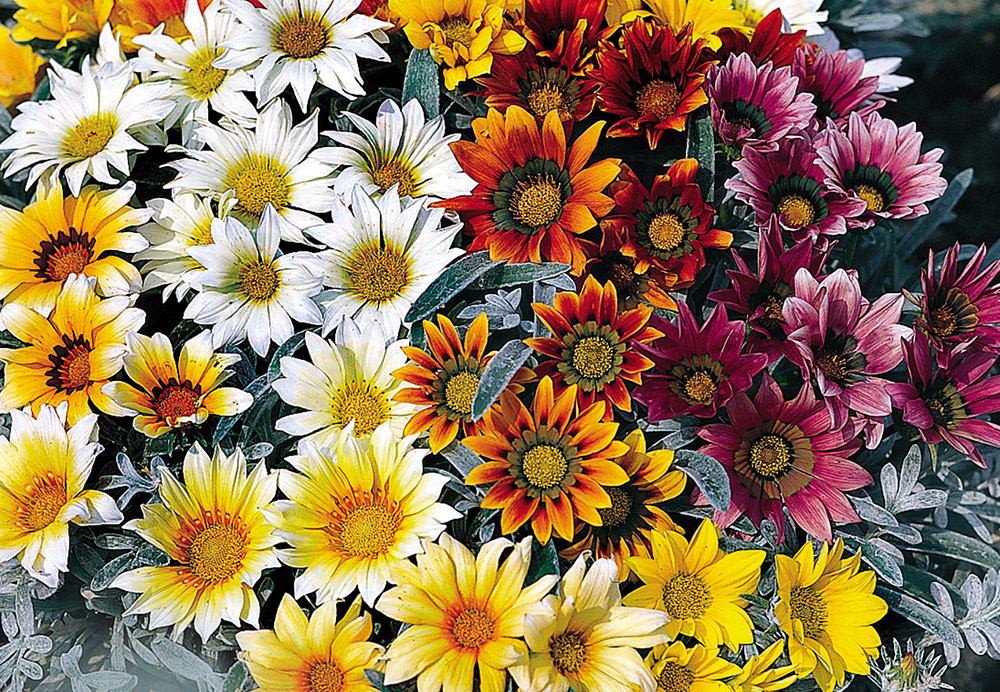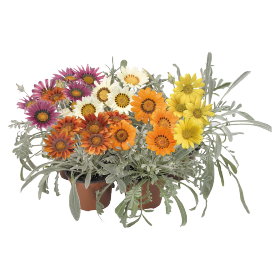

Talent®
- Compact early flowering plants
- Perfect for pot and container production
- Vibrant flowers offer striking contrast to the silvery white foliage
- Excellent shelf life
- Crop Time
- Frühjahr: 12 - 15 Wochen
- Höhe ∅
- 20 cm
- Standort
- Sun
- Seed Form
- Roh
- Product Use
- Beet und Balkon, Landschaft
Technical guide
Verwendung
Beddings, window-boxes, pot and container plants for patio
Aussaattermin
November-December for flowering in pot from April onwards; January-March for flowering in pot from June onwards
Kornablage
3-5 seeds per plug
Keimbedingung
10-12 days at 70 °F (21 °C), germination condition: Cover seeds lightly
Topfen
Transplant plugs after 5-6 weeks. Grow on at 55-60 °F (13-15 °C). Apply 150 ppm nitrogen weekly in a well-balanced formula.
Medien
Use a well-drained, growing substrate with 15-30 % clay, 1-1,5 kg/m³ complete balanced fertilizer, 1,5 kg/m³ slow release fertilizer (3-6 months), iron-chelate, micronutrients, pH: 5.5-5.8.
Temperatur
Grow at 12-16 °C. Very cold temperatures will increase the cultivation time. Gazania does tolerate not frost.
Düngung
High fertilization levels are required. Fertilize the crop weekly with 150-200 ppm nitrogen (at 1,5 kg/m³ slow release fertilizer in substrate), using a complete balanced fertilizer. Avoid high ammonium and high nitrogen levels. Avoid pH above 6.0, as high pH causes iron deficiency. Apply chelated iron, if chlorosis becomes a problem. To prevent magnesium deficiency, apply magnesium sulphate (0,05 %) 1-2 times. Gazania does tolerate high salt levels in substrate.
Stage I Starts with the radicle breaking through the testa. The roots are touching the medium. Ends with fully developed cotyledons.
Stage II Starts from fully developed cotyledons. Ends with the fully developed true leaf or true leaf pair.
Stage III Starts from the fully developed true leaf or true leaf pair and ends with 80% of the young plants being marketable.
Stage IV All young plants are ready for sale and in the process of being hardened off. This stage lasts about 7 days.
The cultural recommendations are based on results from trials conducted under Central European conditions. Different conditions in other parts of the world may lead to deviations in results achieved.
